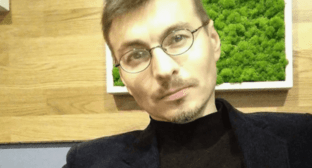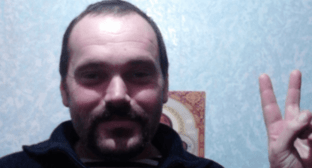28 October 2016, 19:08
HRC "Memorial" reports on 13 political prisoners from Southern Russia
The lists of people, recognized by the Human Rights Centre (HRC) "Memorial" as political prisoners, include 13 residents of the south of Russia and four other persons sentenced in the North-Caucasian Federal District (NCFD) and the Southern Federal District (SFD). In total, those lists include 102 people.
The new lists of political prisoners have been published by the HRC "Memorial" today, on the eve of the Day of memory of victims of political repressions (October 30). At present, there are two of such lists, not one. The first list includes only those persons who, according to the human rights defenders, are persecuted only in connection with observation of their right to freedom of religion, and the second list includes the other political prisoners. The decision on the division of the lists is made in order to better reflect the situation with political persecution in Russia.
According to the human rights defenders, in comparison with 2015, the number of political prisoners in Russia has increased from 50 up to 102 people, that is, more than two times.
The list of persons sentenced for religious motives includes three natives of Dagestan. Of them, two men are Makhachkala residents Saipula Kurbanov and Shamil Ismailov, sentenced in Moscow in the case of the organization "Hizb ut-Tahrir", banned in Russia by the court. Besides, the list includes Magomednabi Magomedov, the imam of the "Eastern" mosque of Khasavyurt, who called on for peaceful protection of the rights of Salafis and who was sentenced on October 24 to five years of imprisonment on charges of inciting terrorism.
The second list includes 10 more residents of the south of Russia, including Zhalaudi Geriev, a "Caucasian Knot" correspondent; Zarema Bagavutdinova, an activist of the regional public organization "Legal Protection"; Rasul Kudaev, a former Guantanamo inmate, involved in the case of the militants' attack on Nalchik; President of the Assembly of Peoples of the Caucasus Ruslan Kutaev; Darya Polyudova, an opposition activist, one of the organizers of the failed action "For the Federalization of Kuban"; Igor Stenin, the leader of the nationalist movement "Russians of Astrakhan", sentenced for reposting an extremist article; Maxim Smyshlyaev, a Rostov student supporting left-wing activists; Pyotr Parpulov, an air traffic controller from Sochi, sentenced on the charge of treason; Maxim Panfilov, a resident of Astrakhan, involved in the action in Bolotnaya Square in Moscow. Besides, the list includes Ukrainian resident Andriy Kolomiets, living in Kabardino-Balkaria, who was sentenced to 10 years of imprisonment for throwing a "Molotov cocktail" during the protest action in Kiev.
Finally, the list also mentions four other citizens of Ukraine, including Nikolai Karpyuk and Stanislav Klykh, sentenced in Chechnya, and Oleg Sentsov and Alexander Kolchenko, sentenced in Rostov-on-Don.
Full text of the article is available on the Russian page of 24/7 Internet agency ‘Caucasian Knot’.




